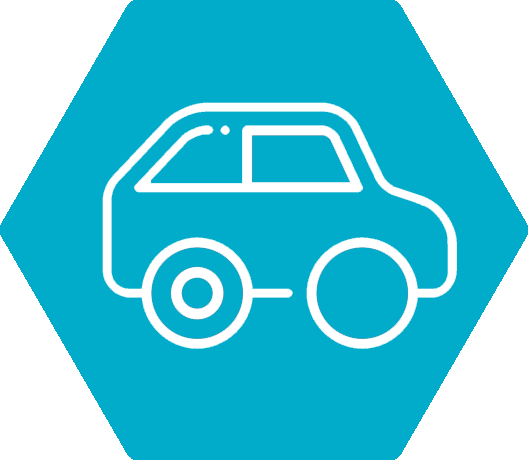 Transportation
Transportation
Sector profile
Transportation is essential to our everyday life. Different modes of transportation include air, rail, road, water, cable, pipeline and space. Career options range from the service, repair, and modification of vehicles and vehicle systems to the organization and management of transportation services and mass-transit systems.
Possible career paths
For Transportation majors, possible career paths include these occupation groupings:
-
Apprenticeship – automotive service technician, truck and bus mechanic, or mechanical repairer; construction millwright or industrial mechanic; motor vehicle body repairer; motorcycle, all-terrain vehicle, or other related mechanic; other automotive mechanical installer and servicer; other small engine or small equipment repairer.
-
College – air pilot, flight engineer, or flying instructor; boat assembler or inspector; deck officer, water transport; industrial designer; industrial engineering or manufacturing technologist or technician; machine operator or inspector, electrical apparatus manufacturing; mechanical engineering technologist or technician; supervisor, motor transport, or other ground transit operator.
-
University – aerospace engineer; industrial designer; urban and land use planner.
-
Entry level workplace – air transport ramp attendant; aircraft assembler or and aircraft assembly inspector; boat or cable ferry operator or related occupation; boat assembler or inspectors; bus driver, subway operator, or other transit operator; delivery or courier service driver; heavy equipment operator (except crane); other automotive mechanical installer or servicer; railway yard or track maintenance worker; retail salesperson; service station attendant; tire repairer or servicer.
Program requirements
In the Transportation major, students will take 8 credits in grade 11 and 12:
-
4 major credits that provide sector-focused knowledge and skills
-
1 English credit (Grade 12)
-
1 Math credit (Grade 11)
-
1 Business Studies or Science credit (Grade 11 or 12)
-
2 Co-operative Education credits to apply, refine, and extend your sector knowledge and skills
Additionally, students will have opportunities for
-
Experiential learning, career exploration and reach-ahead activities in Transportation
-
Certifications and training programs, including:
-
4 compulsory certifications: Standard First Aid, CPR Level C with AED, WHMIS (generic), and Basic Health and Safety
-
3 additional certifications or training programs
-
A sector-partnered contextualized learning experience, such as math literacy in the Transportation industry
Transportation major credits are delivered at the ALCDSB Technology Learning Centre at the Sir James Whitney campus.
For more information
Contact the Guidance department at the following schools that offer the Transportation SHSM program:
Guidance Department 613-967-0404 Ext. 236
Guidance Department 613-394-4843, Ext. 229
Guidance Department 613-968-6993, Ext. 2009
Explore our programs
